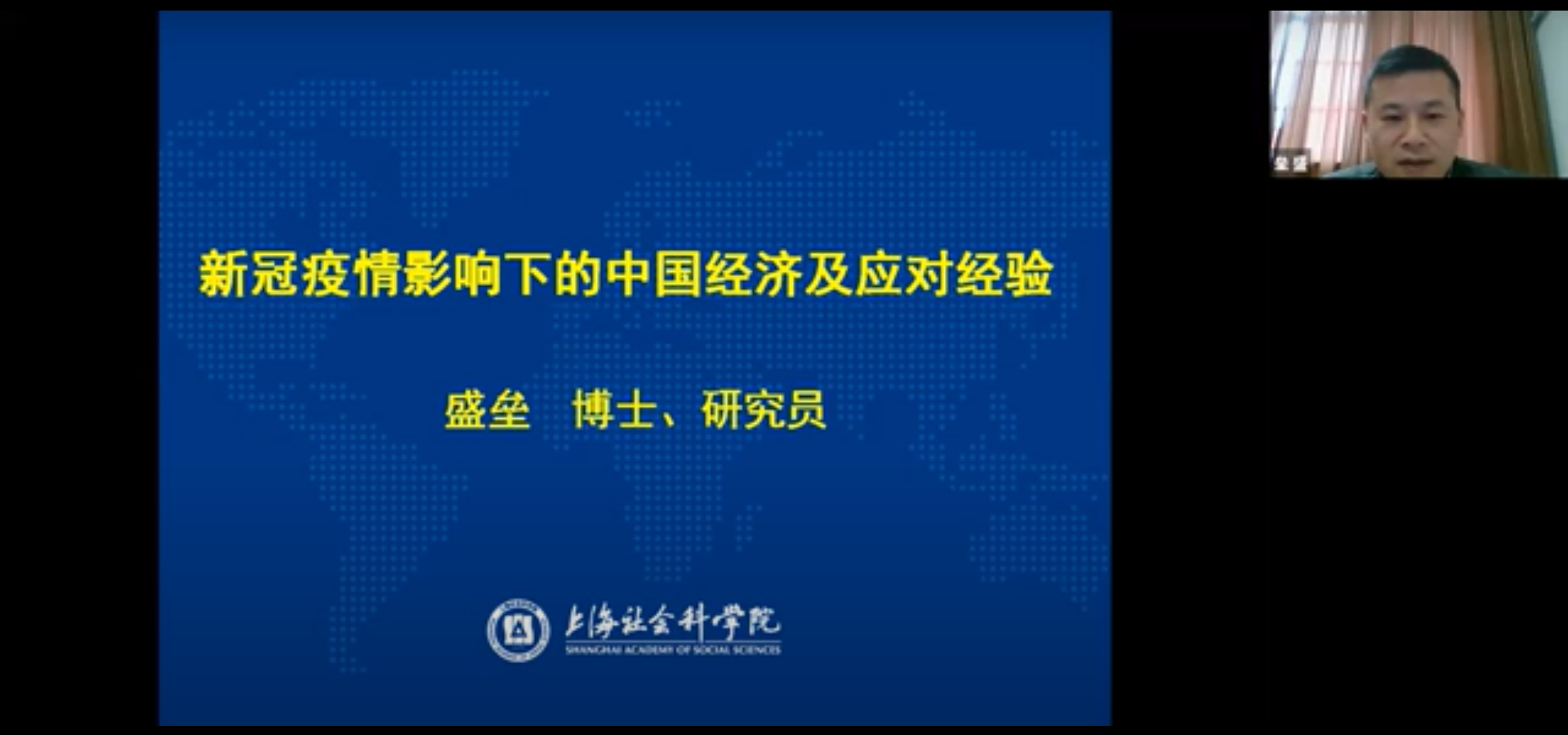
-page-001.jpg)

Dr Sheng explaining the economic
situations faced by China
A webinar titled “Covid-19 Impacts on China's Economy
and its Response Plan (新冠疫情对中国经济的影响以及其应对经验)”
was co-organised by Tun Tan Cheng Lock Centre for Social and Policy Studies
(TCLC), Centre for International Study (CIS) and Centre for Foundation
Studies of Sungai Long Campus (CFS) on 19 March 2021. The webinar was hosted
on Zoom with an attendance of 297 participants.
The invited speaker was Shanghai Academy of Social
Science Institute of World Economy National and Regional Economic Research
Office Deputy Director Assoc Prof Dr Sheng Lei (盛垒博士).
Dr Sheng’s research areas were mainly related to macroeconomic, technology
and innovation, regional economy and urban development. Recently, he has
been focusing on China and the global economic transformation.
Dr Sheng started his webinar by explaining the
economic situations faced by China, “Over the past year, I believe all of us
know that the Covid-19 pandemic was beyond everyone's expectation. The
Covid-19 pandemic has brought a very serious impact on the global economy as
well as China’s economy. China was hit hard by a severe recession; we can
see that the impact now is more serious compared to the SARS outbreak in
2003 and financial crisis in 2008.”
In the webinar, Dr Sheng focused on three main
topics, namely 2020 global economic situations, 2020 China economic
situations which included employment (就业),
foreign trade (外贸),
foreign capital (外资),
consumer spending (消费),
income (收入)
and tourism (旅游业),
and the reasons for China’s economic recovery and its plan.
“The world's major economies were hit hard by the
pandemic; International Monetary Fund (IMF) projected a deep recession in
2020. Global growth is projected to be -4.4 per cent, advanced economies to
be -5.8 per cent, and emerging and developing economies to be -3.3 per
cent,” said Dr Sheng.
Speaking of China’s economic situations in 2020, he
said, “In 2020, China experienced three major pressures: firstly, the
serious impact from Covid-19 pandemic; secondly, the recession that took
place in the global economy; thirdly, United States’ containment towards
China. While facing these three major pressures, China's economy still
managed to achieve good results. The economy improved quarter by quarter and
gradually returned to normal.”
Dr Sheng added, “The world economic situations are
still in a very complex and challenging stage as most of the countries have
tightened their borders to fight the pandemic. Furthermore, the supply and
demand chain was greatly affected and the domestic demand was insufficient.
The consumers in China are still in a recovery stage and lagging. The small
and medium-sized enterprises and individual businesses were affected the
most during the Covid-19 pandemic. The hospitality industries and tourism
industries have still not fully recovered from the pandemic.”
Nearing the end of the webinar, Dr Sheng concluded,
“Resilience” is the key to determine the speedy recovery performance of
China in the economic sector. Economic resilience saw the capacity of an
economy to resist a particular shock and to recover rapidly to the previous
level of growth or better. In the process of battling with the Covid-19
pandemic, China has shown a great resilience by not only withstanding the
huge impact of the pandemic but also providing rapid economic recovery.”
.png)
![]()
Wholly owned by UTAR Education Foundation Co. No. 578227-M LEGAL STATEMENT TERM OF USAGE PRIVACY NOTICE